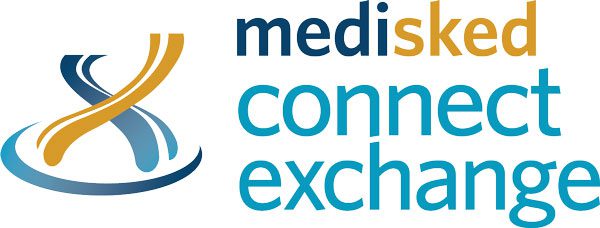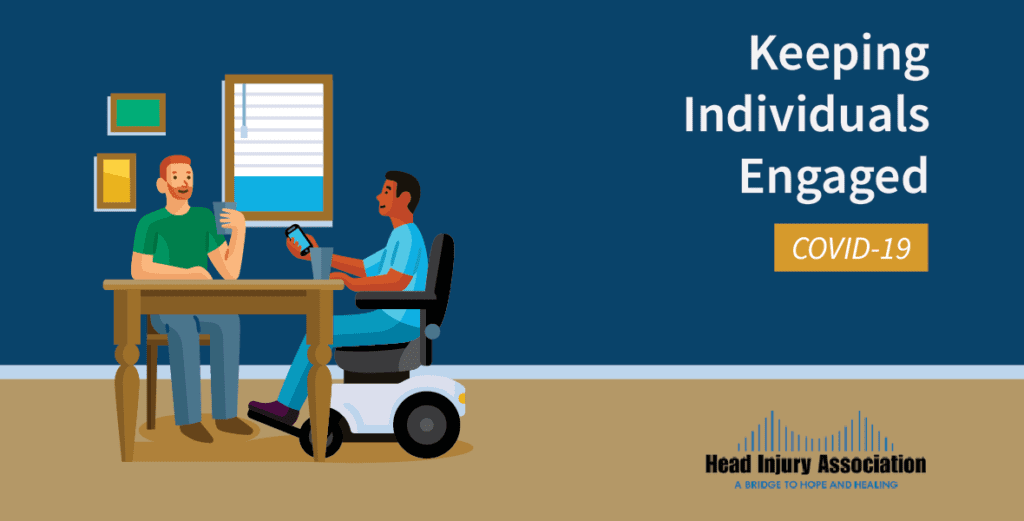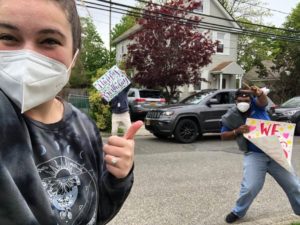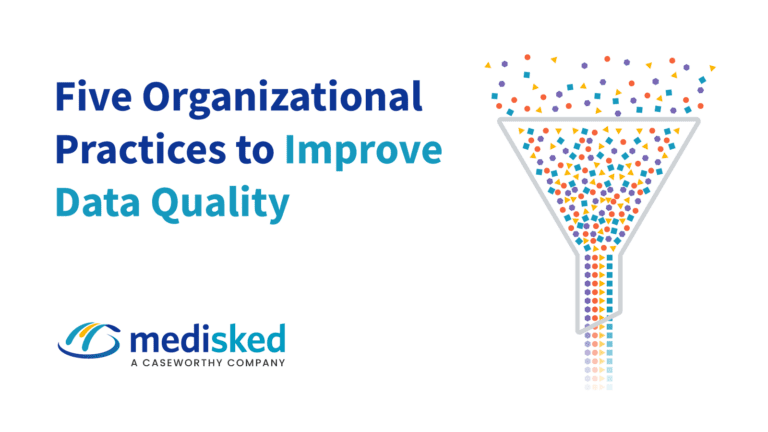We spoke with Kristin Fitzgerald, the Vice President of Day Program Services at Head Injury Association to learn how they adapted to ensure that the individuals they support still had meaningful ways to spend their day. Head Injury Association supports individuals with traumatic brain injuries and individuals with developmental disabilities across Long Island and all five boroughs of New York City, which was at one point the largest hotspot for COVID-19 in the country.
After the shutdown in March, it took time for Head Injury Association to query who had supports to get people online and engaged. Head Injury Association provides both residential and day habilitation services to many of the individuals they support. With day programs shuttered, they decided to provide day hab services in person in their group homes. The day hab staff work their same shifts but moved the location to the group homes. For their participants who live in the community, they use tools like FaceTime and Skype, where appropriate. They also emphasize checking in with the individuals they support. They send lessons to everyone. If there aren’t social visits, then staff are making phone calls at least 1-2 times daily.
Initially, each day program manager had a caseload of the Individual Residential Alternative group homes (IRAs) and their staff was trained to offer curriculums and activity schedules. Over the past three months, they’ve learned more and expanded the programming. Head Injury Association is fortunate to have multiple specialists in the areas of art, music, horticulture, and wellness. Their specialists develop the lesson plans that are distributed to staff. The question they’ve focused on is “what do we do to engage people?” Their activities have ranged from teaching coping skills, to emphasis on opportunities for self-care, to journaling about gratefulness and other emotions, to recreational games.
Head Injury Association recommends a few programs that agencies across the country could consider replicating:
 Birthday Drive-Bys
Birthday Drive-Bys
There have been three months of birthdays since the initial shutdown. Head Injury Association staff have been doing birthday “drive-bys” to celebrate their individuals. In one instance, they got this comment: “Her sister had her ready at the door, and she cried tears of joy upon our arrival!”
Agency Cookbook
They developed an Agency Cookbook to help people feel engaged with their peers at other locations. The day program managers collected recipes from individuals both in IRAs and living in the community to create a physical cookbook. In addition to creating and distributing the cookbook, they held Zoom cooking sessions to show how the recipes are made. This program was as fun as it was educational. It helped to facilitate conversations about nutrition including calories, proteins, sugars, carbs, good fats, and bad fats. They also discussed how carbs break down into sugar, expiration dates, safe food storage (refrigeration vs. room temperature) and more.
Social Distance Visits
Now that New York is gradually reopening, there is more room for “in-person” interactions. People can take walks and exercise outdoors. Their specialists are providing socially distant opportunities, engaging with art and music lessons from afar. Head Injury staff are doing many drop offs for their individuals living in the community, like flowers from the horticulturist. Staff want them to feel the connection to programs and they often bring treats like gift cards or lunches.
Solo Activities
The individuals they support understandably tire of seeing each other and being at home. Head Injury Association offers alternative activities to allow people to recharge, using tools like FaceTime to do activities with people from other group homes.
Individualized Opportunities
Many people are struggling with the current isolation. Head Injury Association customizes additional resources to lend an emotional hand. For example, one individual tends to shut down when things get hard, but they knew she loves to make matzah ball soup. Her staff did a 1:1 soup activity with her and it brought her happiness and comfort. That woman then led a class and taught her roommates how to make it.
Virtual Games
Head Injury Association has many bingo lovers, which is a fun activity that can easily be done virtually. Their staff scans over bingo cards and drops off prizes to heighten the enjoyment for participants in the game.
About Head Injury Association:
Head Injury Association is a not-for-profit organization committed to increasing public awareness of the effects of Traumatic Brain Injury (TBI) and Intellectual/Developmental Disabilities (I/DD). The Head Injury Association was founded on Long Island by a group of parents who sought services for their children who suffered from a TBI. They support individuals with traumatic brain injuries and individuals with developmental disabilities across Long Island and all five boroughs of New York City.






 Birthday Drive-Bys
Birthday Drive-Bys

